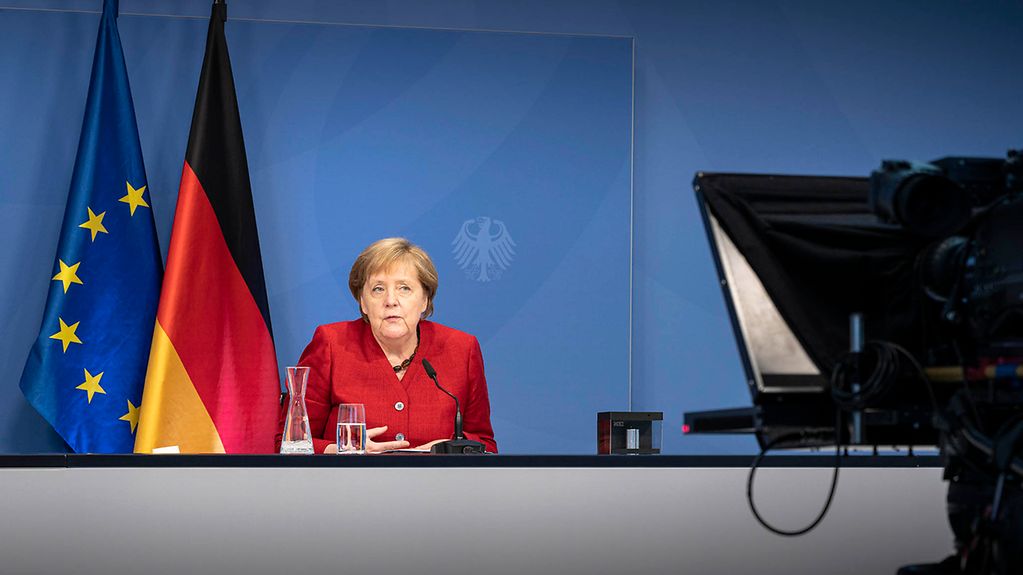Research
Germany’s first ever quantum computer – the research platform “IBM Quantum System One” – has been launched in Ehningen, Baden-Württemberg. Federal Chancellor Merkel commented: “Germany is among the global leaders in quantum technology research.” The Federal Government aims to invest an additional two billion euros in the field by 2025.
3 min reading time

Federal Chancellor Merkel at the launch of “IBM Quantum System One”: the new platform is the first of its kind in Europe.
Photo: Federal Government/Bergmann
As part of a joint project, the Fraunhofer Society for the Advancement of Applied Research is operating the first universal quantum computer developed by the US IT company IBM, now enabling researchers from industry and science to develop application-oriented quantum algorithms, test the new technology and extend their expertise. Embedded in the Fraunhofer Competence Network Quantum Computing, the new platform is the first of its kind in Europe.
Federal Chancellor Angela Merkel attended the official launch event on Tuesday: “The quantum computer is without doubt an outstanding showcase for Germany as a high-tech hub.” The Chancellor also highlighted the previously unimaginable speed of the new computer, saying that Germany was among the world leaders in quantum technology research and keen to maintain this status. According to Merkel, the aim is to put the results of research to use for business and industry, too.
Ten leading German companies have already joined forces to form the ”Quantum Technology and Application Consortium (QUTAC)“. Their aim with the new research platform is to harness quantum computing for industrial use and enhance economic success. The quantum computer is available to start-ups too, however, as well as small and medium-sized enterprises.
Future technology strengthens Germany as an innovation hub
Quantum technology is regarded as a game changer that will give rise to new knowledge and new possibilities in numerous areas within just a few years. Potential applications include optimisation and simulation, logistics and transport, the energy industry, chemistry, medicine and materials science. Not only will this future technology further strengthen Germany’s position as an innovation hub, it will be of practical use to people, too.
Unlike the bits of digital computers, the smallest computing units of quantum computers – known as quantum bits or “qubits” – are able to connect with each other according to special laws of quantum mechanics, thereby taking on a much more complex general state. This is known as “entanglement”. The entangled state of qubits is a unique property of quantum computers. Find out more about the technology here: A brief explanation of quantum computing.
Funding programme launched
In order to promote quantum technologies, the Federal Government has approved an additional investment of two billion euros from the June 2020 economic stimulus package in this field of research. An advisory body appointed in October 2020 – consisting of 16 experts from science and industry – has developed a “Quantum Computing Roadmap” for this purpose.
Federal Chancellor Merkel said that the goal of this government funding is to secure Germany’s digital and technological sovereignty, adding that Germany was excellently equipped to use quantum technology and apply it successfully to marketable innovations.
Flagship status of non-university research
One of Germany’s major non-university research institutions, the Fraunhofer Society is the world’s leading organisation for applied research. Focusing on key technologies relevant to the future and putting the results of research to use in business and industry, it plays a vital role in the innovation process.
Under the new “Pact for Research and Innovation”, the Federal Government and the federal states will be investing 120 billion euros from 2021 to 2030 in non-university research – a sound investment in Germany’s future.